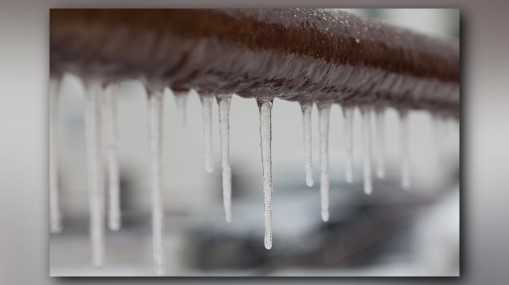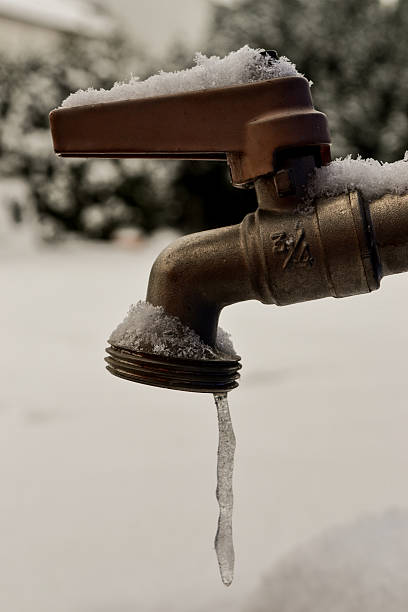They are making several great points related to How To Avoid Freezing Pipes as a whole in the content directly below.

Cold weather can ruin your pipes, especially by freezing pipes. Right here's just how to avoid it from occurring and what to do if it does.
Intro
As temperatures decrease, the danger of icy pipes boosts, possibly bring about pricey repair services and water damages. Recognizing exactly how to stop icy pipelines is essential for house owners in cold climates.
Comprehending Frozen Pipelines
What creates pipelines to ice up?
Pipes ice up when exposed to temperatures listed below 32 ° F (0 ° C) for expanded periods. As water inside the pipelines freezes, it broadens, putting pressure on the pipe walls and potentially creating them to rupture.
Threats and damages
Frozen pipelines can lead to water disruptions, property damage, and costly fixings. Ruptured pipelines can flooding homes and trigger considerable structural damage.
Indicators of Frozen Pipes
Identifying icy pipelines early can avoid them from rupturing.
Exactly how to identify frozen pipes
Look for decreased water circulation from faucets, uncommon odors or sounds from pipelines, and noticeable frost on exposed pipes.
Prevention Tips
Shielding vulnerable pipes
Wrap pipes in insulation sleeves or use warmth tape to safeguard them from freezing temperatures. Concentrate on pipes in unheated or outside areas of the home.
Home heating methods
Keep indoor rooms properly heated up, especially locations with pipes. Open up cabinet doors to enable cozy air to flow around pipelines under sinks.
Safeguarding Outside Pipes
Yard tubes and outside taps
Separate and drain garden hose pipes before wintertime. Set up frost-proof spigots or cover outdoor taps with shielded caps.
What to Do If Your Pipes Freeze
Immediate actions to take
If you presume icy pipes, maintain faucets open up to relieve pressure as the ice thaws. Utilize a hairdryer or towels taken in hot water to thaw pipelines slowly.
Long-Term Solutions
Architectural changes
Think about rerouting pipelines away from outside wall surfaces or unheated areas. Include extra insulation to attics, cellars, and crawl spaces.
Upgrading insulation
Buy high-quality insulation for pipelines, attics, and wall surfaces. Proper insulation assists keep regular temperatures and minimizes the danger of icy pipelines.
Verdict
Avoiding frozen pipes requires aggressive steps and quick responses. By comprehending the reasons, indications, and safety nets, home owners can protect their pipes throughout cold weather.
Helpful Tips to Prevent Frozen Pipes this Winter
UNDERSTANDING THE BASICS: WHY PIPES FREEZE AND WHY IT’S A PROBLEM
Water freezing inside pipes is common during the winter months, but understanding why pipes freeze, and the potential problems it can cause is crucial in preventing such incidents. This section will delve into the basics of why pipes freeze and the associated problems that may arise.
THE SCIENCE BEHIND FROZEN PIPES
When water reaches freezing temperatures, it undergoes a physical transformation and solidifies into ice. This expansion of water as it freezes is the primary reason pipes can burst. As the water inside the pipe freezes, it expands, creating immense pressure on the walls. If the pressure becomes too great, the pipe can crack or rupture, leading to leaks and water damage.
FACTORS THAT CONTRIBUTE TO PIPE FREEZING
- Low Temperatures: Extremely cold weather, especially below freezing, increases the risk of pipes freezing.
- Uninsulated or Poorly Insulated Pipes: Pipes located in unheated areas, such as basements, crawl spaces, or attics, are more prone to freezing. Insufficient insulation or lack of insulation altogether exacerbates the problem.
- Exterior Wall Exposure: Pipes running along exterior walls are susceptible to freezing as they encounter colder temperatures outside.
- Lack of Heating or Temperature Regulation: Inadequate heating or inconsistent temperature control in your home can contribute to frozen pipes.
PROBLEMS CAUSED BY FROZEN PIPES
WHY CERTAIN PIPES ARE MORE PRONE TO FREEZING
- Pipe Bursting: As mentioned earlier, the expansion of water as it freezes can cause pipes to burst, resulting in significant water damage.
- Water Damage: When pipes burst, it can lead to flooding and water damage to your property, including walls, ceilings, flooring, and personal belongings.
- Structural Damage: Prolonged exposure to water from burst pipes can compromise the structural integrity of your home, leading to costly repairs.
- Mold and Mildew Growth: Excess moisture from water damage can create a favorable environment for mold and mildew growth, posing health risks to occupants.
- Disrupted Water Supply: Frozen pipes can also result in a complete or partial loss of water supply until the issue is resolved.
https://busybusy.com/blog/helpful-tips-to-prevent-frozen-pipes-this-winter/
- Location: Pipes located in unheated or poorly insulated areas, such as basements, crawl spaces, attics, or exterior walls, are at higher risk of freezing.
- Exterior Pipes: Outdoor pipes, such as those used for irrigation or exposed plumbing, are particularly vulnerable to freezing as they are directly exposed to the elements.
- Supply Lines: Pipes that carry water from the main water supply into your home, including the main water line, are critical to protect as freezing in these lines can affect your entire plumbing system.
- Underground Pipes: Pipes buried underground, such as those connected to sprinkler systems or outdoor faucets, can be susceptible to freezing if not properly insulated.

I ran across that blog post about Winter Plumbing Precautions: Preventing Frozen Pipes while doing a lookup on the internet. Sharing is nice. Who knows, you will be helping someone out. Thank-you for your time spent reading it.
Book With Us Today!
Comments on “How to Defend Pipes from Cold Weather: Professional Advice”